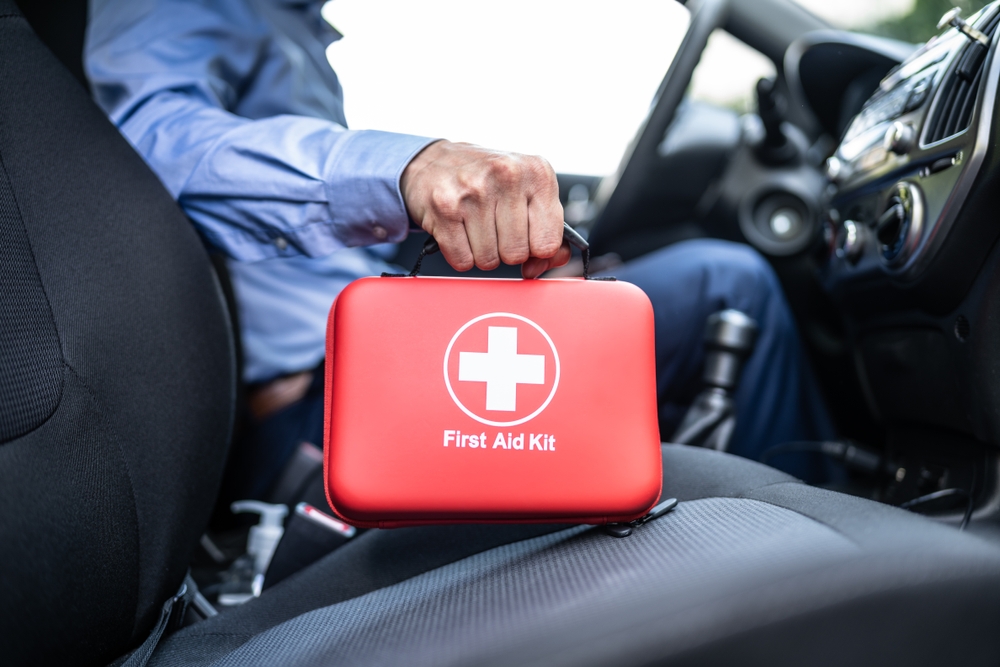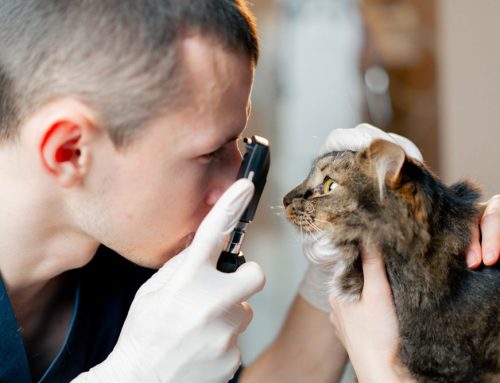Diseases Pets Can Encounter on the Road
Even indoor pets can face risks when traveling. Boarding, hotel stays, or brief encounters with local wildlife can expose them to respiratory infections, parasites, or contagious skin conditions. It is natural for owners to wonder how serious these exposures might be and whether immediate care is needed. At Wales Animal Clinic in Wales, WI, our team emphasizes prevention and provides thorough diagnostic care when travel leads to unexpected health concerns.
Travel and Your Pet’s Health: What to Watch For
When preparing for a trip with your pet, whether it’s a family vacation or a quick getaway, it’s easy to overlook the health risks that come with a change in environment. Travel introduces pets to unfamiliar pathogens, different climates, and increased stress, all of which can weaken their immune system and make them more vulnerable to illness.
Even well-cared-for indoor cats and healthy dogs can face unexpected challenges while away from home. Exposure to new regions may bring your pet into contact with diseases they haven’t built immunity against. Stress from travel, combined with close proximity to other animals in hotels, boarding facilities, or rest stops, creates ideal conditions for illness to spread.
Common Infectious Diseases for Traveling Pets
Travel-related infectious diseases range from mild respiratory infections to serious systemic conditions that require immediate veterinary attention.
Leptospirosis: A Hidden Danger for Dogs
Leptospirosis is a serious bacterial infection spread through contaminated water sources like puddles, ponds, and damp soil where infected wildlife has urinated. Dogs are especially at risk when hiking or swimming.
Because leptospirosis is zoonotic (transmissible to humans), early recognition and treatment are crucial. Symptoms can include:
- Fever
- Lethargy
- Loss of appetite
- Vomiting
- Increased urination
Without prompt care, leptospirosis can lead to kidney or liver failure. Preventing leptospirosis in pets includes vaccination and avoiding risky environments.
Heartworm: A Silent Threat in Warmer Climates
Mosquito-borne heartworm risk rises in warmer regions where mosquitoes are active year-round. Heartworm develops silently over months, so prevention is far more effective than treatment.
The canine heartworm prevalence map shows higher risk in the Southeast, Gulf Coast, and Mississippi River valley- but Wisconsin is also very high risk. Monthly preventives work well but must be given consistently and started before exposure.
Respiratory Infections in Pets
Boarding, dog parks, and grooming salons are hotspots for contagious respiratory illnesses like kennel cough.
Signs include:
- A persistent cough
- Nasal discharge
- Mild lethargy
Puppies, seniors, and immunocompromised pets are at greater risk for complications. Vaccination helps protect against common pathogens, which is why wellness and prevention plans at Wales Animal Clinic include tailored vaccine schedules for traveling pets.
Parasites and Wildlife: Hidden Hazards During Pet Travel
Traveling with your pet means new places to explore, but also new risks to avoid. Parasites and wildlife encounters are two of the most common and often overlooked threats pets face when away from home.
Parasites: Fleas, Ticks, and Intestinal Threats
Parasites are one of the most common and preventable health risks pets face while traveling.
- Fleas can be picked up in pet-friendly hotels, boarding facilities, or even brief stops outdoors.
- Ticks, especially in wooded or grassy areas, can transmit serious diseases like Lyme disease in the Northeast or Rocky Mountain spotted fever in parts of the West and Southwest.
- Intestinal parasites are another concern, often spread through contaminated soil, water, or animal waste.
Since parasite species and resistance levels vary by region, consistent, year-round prevention is essential. Monthly flea and tick preventives, along with routine fecal testing, help detect and manage infestations early, protecting both your pet and others in your household. Following established preventive healthcare guidelines ensures your pet stays protected wherever your travels take you.
Wildlife Encounters: Unexpected Dangers
New environments also bring the possibility of wildlife encounters, which can pose serious health risks. Animals like raccoons, skunks, and bats are known carriers of rabies, while smaller wildlife and rodents may transmit parasites or bacterial infections. Even the most obedient pets may react unpredictably around wildlife, increasing the risk of bites, scratches, or disease transmission.
Minimizing these risks starts with close supervision.
- Keep pets on a leash during outdoor activities.
- Avoid letting them roam in unfamiliar areas
- Stay alert to local wildlife activity
A little caution goes a long way in keeping your pet safe during outdoor adventures.
Environmental Hazards for Pets While Traveling
From soaring temperatures to toxic plants, new environments can introduce hidden risks for pets. Understanding these hazards is key to ensuring a safe and enjoyable trip.
Heat and Weather Concerns for Traveling Pets
Temperature extremes can be dangerous, especially inside vehicles where heat can become lethal within minutes. Heat stroke can cause organ damage or death without prompt treatment and Wisconsin pets traveling to warmer destinations may not be acclimated. Watch for:
- Excessive panting
- Drooling
- Weakness
- Vomiting
- Collapse
Heat safety for pets includes hydration, shade, rest breaks, and monitoring for early warning signs of heat distress.
Water-related Risks for Pets
Natural water sources can harbor bacteria or toxic algae. Blue-green algae in warm, stagnant water produces toxins that can cause severe illness or death within hours. Suspicious water may look green or murky, with surface scum. Don’t let pets drink from or swim in questionable water and carry fresh water on outings.
Plant and Food Toxicity
New regions introduce unfamiliar plants and toxins. The ASPCA’s toxic and non-toxic plant database helps identify risks. Common toxic plants include:
- Azaleas
- Oleander
- Sago palm
- Some mushrooms
Keep human foods and local treats out of reach unless you’re sure they’re safe for pets.
Protecting Your Pet’s Health During Travel: A Checklist
Planning ahead is essential for safe and healthy pet travel. Start by scheduling a pre-travel exam several weeks before departure to confirm that core vaccinations are up to date and to discuss destination-specific recommendations. At Wales Animal Clinic, our diagnostic services, including blood work, parasite screening, and full health assessments, help ensure your pet is fit for travel and ready for the journey ahead.
Travel health planning is never one-size-fits-all. We tailor our recommendations based on your pet’s age, medical history, and itinerary. This includes appropriate vaccines, parasite preventives, and diagnostics aligned with your destination and activities.
1. Travel Preparation for Your Pet
Preparation can reduce the chance of a pet emergency. Research destination-specific risks, pack medications and preventives, and map out emergency veterinary hospitals along your route. You can also prepare your pet for travel by
- Acclimating your cat to their carrier
- Learning motion-sickness strategies
- Asking your vet about pet anxiety management
- Using safe restraint during travel
2. Emergency Preparedness for Pet Travel
Basic first aid knowledge is invaluable on the road. Red Cross pet first aid classes teach wound care, choking management, CPR basics, and how to identify medical emergencies until you can reach a veterinarian.

3. Continuing Care and Support After Travel
Some travel-related illnesses have incubation periods, so symptoms may appear days or weeks after you return. We encourage post-travel checkups following extended trips or high-risk exposures. Early detection typically leads to faster recovery and better outcomes. Contact Wales Animal Clinic to create a comprehensive protection plan or to schedule a post-trip evaluation.
Your Partner in Safe, Healthy Pet Travel
If your pet shows signs of illness after travel, such as persistent coughing, skin irritation, vomiting, diarrhea, lethargy, or appetite changes, seek veterinary care promptly. At Wales Animal Clinic, our diagnostics and personalized approach help identify and treat travel-related concerns quickly.
Call us at (262) 968-2507 to schedule a pre-travel consultation or post-trip health assessment. We’re here to protect the special bond you share with your pet with expert, compassionate care.







Leave A Comment